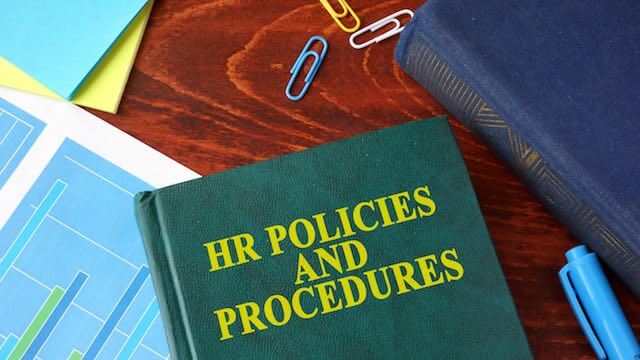Recently introduced legislation would restore four executive orders issued during the Trump administration that addressed poorly performing federal employees and put more restrictions on federal employee unions.
Congressman Jody Hice (R-GA) has introduced the Accountable Federal Employees Act (H.R. 7095) to restore the provisions of the four executive orders issued by President Trump.
President Trump’s Executive Orders
So what are the executive orders in question?
President Trump issued three executive orders in 2018 that placed a series of restrictions on federal employee unions and also made it easier to fire federal employees for poor performance.
Among the limitations placed on unions were restrictions on the amount of official time a federal employee could perform working on behalf of a union and charging rent to unions for office space.
Unions were quick to cry foul when the orders were issued. The American Federation of Government Employees (AFGE) called the orders a “threat to democracy” and also sought relief in court to block the executive orders. Other unions sued the Trump administration in retaliation.
“This is more than union busting – it’s democracy busting,” then AFGE National President J. David Cox Sr. said in a press release. “These executive orders are a direct assault on the legal rights and protections that Congress has specifically guaranteed to the 2 million public-sector employees across the country who work for the federal government.”
Controlling Unions’ Use of Official Time
Executive Order 13837 placed restrictions on federal employee unions’ use of official time. It assumed that the use of paid time for union representatives is not in the public interest and that union business is hindering agencies from accomplishing their mission.
It outlined these changes:
- New reporting requirements are included in the Order if an agency agrees to authorize taxpayer-funded union time that would cause the union time rate to exceed one hour.
- Employees are expected to spend at least three-quarters of their time during a fiscal year performing their function as a federal employee and not as a union representative.
- No employee acting on behalf of a federal labor organization will be permitted free or discounted use of government property or agency resources. This includes office or meeting space, reserved parking spaces, phones and computers.
- Employees cannot use union time to prepare or pursue grievances brought against an agency.
Streamlining Federal Employee Removal Procedures
Executive Order 13839 sought to provide a quicker process for taking action to fire a federal employee by seeking to minimize the “burden on supervisors” and to restrict the opportunity of an employee to demonstrate acceptable performance.
The Order cited results from Federal Employee Viewpoint Surveys which found that federal employees were frustrated with agencies’ inabilities to remove underperforming co-workers. A section within the executive order stated:
The Federal Employee Viewpoint Survey has consistently found that less than one-third of Federal employees believe that the Government deals with poor performers effectively. Failure to address unacceptable performance and misconduct undermines morale, burdens good performers with subpar colleagues, and inhibits the ability of executive agencies…to accomplish their missions. This order advances the ability of supervisors in agencies to promote civil servant accountability consistent with merit system principles while simultaneously recognizing employees’ procedural rights and protections.
Congressman Hice noted this in a press release issued with the introduction of his bill:
Year after year, the wide majority of federal employees attest in the Federal Employees Viewpoint Survey that the federal government deals ineffectively with their poorly performing colleagues. Prominent among the reasons for this problem are provisions in federal employee union contracts that make it too hard to discipline and remove failing employees. Making matters worse, these contracts often fail to require all employees to focus full-time on performing their jobs. Instead, they allow federal workers to devote excessive taxpayer-funded time to union activities.
New Collective Bargaining Rules
Executive Order 13836 prescribed measures to help agencies efficiently negotiate better collective bargaining agreements with federal employee unions. It also required that collective bargaining agreements ensure employees are accountable for their conduct and performance on the job.
The order also established an interagency Federal Labor Relations Working Group with the intent of creating a more structured approach to negotiating contracts and placing limits on the time agencies should spend in bargaining.
Schedule F: Creating a New Class of Federal Employees
Perhaps the most controversial of the four executive orders was the establishment of Schedule F.
Executive Order 13597 would have established a new category of federal employees not subject to the usual civil service procedures now applicable to most federal employees. These federal employees would not have access to the usual array of appeal rights because, as the Order stated, “Agencies need the flexibility to expeditiously remove poorly performing employees from these positions without facing extensive delays or litigation.”
Biden Rescinded Trump’s Executive Orders
Almost immediately after taking office, President Biden rescinded these executive orders issued by President Trump.
That, of course, is the purpose of Hice’s bill; to codify the Trump orders in legislation rather than through the White House where they can be added or removed with a simple executive order.
“Americans are suffering at the hands of under-performing federal employees. But unfortunately, Democrats have only sought to protect and reward inadequate job performance with bulletproof job security and a plethora of taxpayer-funded benefits rather than holding these employees accountable for their work. It’s time for Congress to ensure federal agencies meet their missions, and that starts with holding bureaucrats accountable to the American people,” said Hice in a statement about the bill.
In an editorial he wrote about the legislation, Hice also said that federal employees are supposed to be serving Americans but oftentimes instead spend most of their time working for their unions. “…federal workers are employed to serve the American people,” Hice wrote.
He added, “Since coming to Congress, I have been amazed at how much time some federal employees spend not doing their jobs – they spend it on union activities. Call me crazy, but if you are going to draw a salary from the taxpayer, you should do what you were hired to do.”
The bill almost certainly will not advance under the current session of Congress, but its provisions could start to gain more traction after the next round of elections depending on the makeup of the next Congress.





